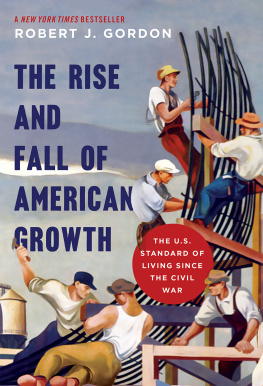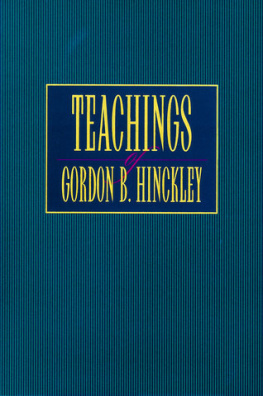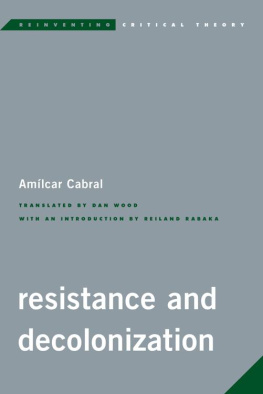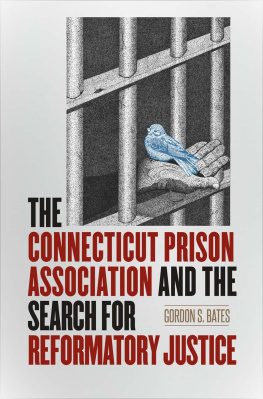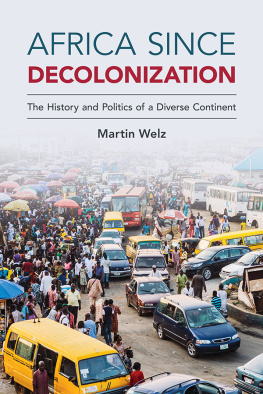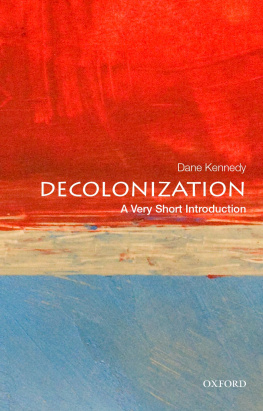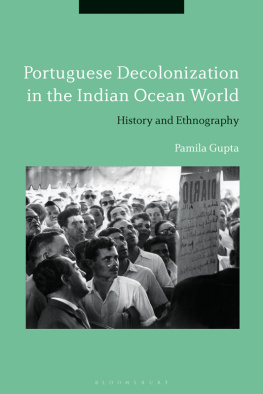Gordon - Freedom, Justice, and Decolonization
Here you can read online Gordon - Freedom, Justice, and Decolonization full text of the book (entire story) in english for free. Download pdf and epub, get meaning, cover and reviews about this ebook. year: 2020, publisher: Taylor and Francis, genre: Politics. Description of the work, (preface) as well as reviews are available. Best literature library LitArk.com created for fans of good reading and offers a wide selection of genres:
Romance novel
Science fiction
Adventure
Detective
Science
History
Home and family
Prose
Art
Politics
Computer
Non-fiction
Religion
Business
Children
Humor
Choose a favorite category and find really read worthwhile books. Enjoy immersion in the world of imagination, feel the emotions of the characters or learn something new for yourself, make an fascinating discovery.

Freedom, Justice, and Decolonization: summary, description and annotation
We offer to read an annotation, description, summary or preface (depends on what the author of the book "Freedom, Justice, and Decolonization" wrote himself). If you haven't found the necessary information about the book — write in the comments, we will try to find it.
Gordon: author's other books
Who wrote Freedom, Justice, and Decolonization? Find out the surname, the name of the author of the book and a list of all author's works by series.
Freedom, Justice, and Decolonization — read online for free the complete book (whole text) full work
Below is the text of the book, divided by pages. System saving the place of the last page read, allows you to conveniently read the book "Freedom, Justice, and Decolonization" online for free, without having to search again every time where you left off. Put a bookmark, and you can go to the page where you finished reading at any time.
Font size:
Interval:
Bookmark:
Freedom, Justice, and Decolonization is a tour de force written by one of the most brilliant and visionary philosophers of our time. This book has never been more relevant at a time when millions have suffered through a terrifying pandemic and then cheered at the courageous and necessary challenge to antiblack racism in the streets of almost every city and town in the United States. In accordance with the mandate to shift the geographies of reason Gordon foregrounds philosophies and political theories of the Global South but only to broaden the reach of such endeavors to move to a universality not bogged down by the violence of colonialism. The great ideals of dignity, freedom, liberation, and justice are defended on every page infused with the lessons and demands of emancipation that inhere in the struggles for decolonization. This is not a trendy book that tries to show us that we have grown out of the great dream of a new species of humanity to use Fanons telling phrase. The opposite is the case; it calls us and inspires us to fight on for the new species. This book is a must read for anyone who wants to understand the complexities of our time and cherishes the hope that we can create a world worthy of the ideas Gordon eloquently defends.
Drucilla Cornell , Research Professor, University of Venda, Professor Emerita at Rutgers University
If you are interested in enlarging the scope of not just knowledge, but also your curiosity in the discipline of philosophy as not just a stand-in and interpreter but instead the fluctuating plane interwoven in shifting the geography of reason, you need to read this book. If you are interested in what can be learned about the connections between what we are used to thinking and our very different ways of thinking, you need to read this book. If you think that cultural politics, multiculturalism, diversity, and tolerance are overused and misused words, you need to read this book. If you are overwhelmed by pessimism of the intellect and hope for some optimism of the will, you need to read this book. Lastly, since you are not going to be traveling so much in the future, maybe you can travel in the different landscapes and different exchanges, by reading this book.
Natalija Miunovi , Institute of Social Sciences, Belgrade, Serbia
In Freedom, Justice, and Decolonization, Gordon offers a profound and challenging discussion of topics both abstract and immediate to make a case for the pressing need for a radical and wide-ranging project of decolonization. In so doing, he undertakes a daring and exciting re-orientation of our approach to such staid and often threadbare preoccupations as freedom, rationality, essence, justice, and the political, each of which is in desperate need of decolonizing. All of this is, at the same time, interwoven with engaging and challenging meditations on pressing issues ranging from the political situation in contemporary Russia, to the pragmatics of Black liberation in the U.S., to the uses and abuses of Afropessimism in and beyond the academy. The result is vibrant and exhilarating demonstration of the power of human thought in a political and cultural moment that consistently works to negate it.
Michael Monahan , author of The Creolizing Subject and editor of Creolizing Hegel
In this deeply, prognostic reflection, Lewis R. Gordon expounds eloquently on the struggles for freedom, justice, and decolonization from a Black existentialist perspective. By shifting the geography of reason, prioritizing the responsibility of reason, and insisting on reasonability, his powerful critique of moralism and liberalism moves through paradoxes of political commitment and contemporary forms of decadence Euromodernity, presumptions of justice, secularized theodicies, Afropessimism, and postmodern avowals. The remarkable site he delivers for political responsibility produces actions that reach beyond the self to the anonymous we. There, in this space of the yet-to-be-born and of many who have become ancestors, he offers a future that is never ours, and presents an unexpected but profound understanding of political responsibility that is premised on a political form of love.
Nkiru Uwechia Nzegwu , SUNY Distinguished Professor
The eminent scholar Lewis R. Gordon offers a probing meditation on freedom, justice, and decolonization. What is there to be understood and done when it is evident that the search for justice, which dominates social and political philosophy of the North, is an insufficient approach for the achievements of dignity, freedom, liberation, and revolution? Gordon takes the reader on a journey as he interrogates a trail from colonized philosophy to re-imagining liberation and revolution to critical challenges raised by Afropessimism, theodicy, and looming catastrophe. He offers not forecast and foreclosure but instead an urgent call for dignifying and urgent acts of political commitment. Such movements take the form of examining what philosophy means in Africana philosophy, liberation in decolonial thought, and the decolonization of justice and normative life. Gordon issues a critique of the obstacles to cultivating emancipatory politics, challenging reductionist forms of thought that proffer harm and suffering as conditions of political appearance and the valorization of nonhuman being. He asserts instead emancipatory considerations for occluded forms of life and the irreplaceability of existence in the face of catastrophe and ruin, and he concludes, through a discussion with the Circassian philosopher and decolonial theorist, Madina Tlostanova, with the project of shifting the geography of reason.
Lewis R. Gordon is Professor and Head of the Department of Philosophy at the University of Connecticut at Storrs; Honorary President of the Global Center for Advanced Studies; Honorary Professor in the Unit for the Humanities at Rhodes University, South Africa; Chairperson of the American Philosophical Association Committee on Public Philosophy; and Chairperson of the Awards Committee and Global Collaborations for the Caribbean Philosophical Association, of which he was the organizations first president. His books published by Routledge include Fanon and the Crisis of European Man, Existence in Black, Existentia Africana, Disciplinary Decadence, and, with Jane Anna Gordon, Not Only the Masters Tools and Of Divine Warning.
Freedom, Justice, and Decolonization
Lewis R. Gordon

First published 2021
by Routledge
52 Vanderbilt Avenue, New York, NY 10017
and by Routledge
2 Park Square, Milton Park, Abingdon, Oxon, OX14 4RN
Routledge is an imprint of the Taylor & Francis Group, an informa business
2021 Taylor & Francis
The right of Lewis R. Gordon to be identified as author of this work has been asserted by him in accordance with sections 77 and 78 of the Copyright, Designs and Patents Act 1988.
All rights reserved. No part of this book may be reprinted or reproduced or utilised in any form or by any electronic, mechanical, or other means, now known or hereafter invented, including photocopying and recording, or in any information storage or retrieval system, without permission in writing from the publishers.
Trademark notice : Product or corporate names may be trademarks or registered trademarks, and are used only for identification and explanation without intent to infringe.
Library of Congress Cataloging-in-Publication Data
A catalog record for this title has been requested
ISBN: 978-0-367-63296-0 (hbk)
ISBN: 978-0-367-63246-5 (pbk)
ISBN: 978-1-003-11259-4 (ebk)
Next pageFont size:
Interval:
Bookmark:
Similar books «Freedom, Justice, and Decolonization»
Look at similar books to Freedom, Justice, and Decolonization. We have selected literature similar in name and meaning in the hope of providing readers with more options to find new, interesting, not yet read works.
Discussion, reviews of the book Freedom, Justice, and Decolonization and just readers' own opinions. Leave your comments, write what you think about the work, its meaning or the main characters. Specify what exactly you liked and what you didn't like, and why you think so.

